[The following is the MESA Global Academy Winter 2023 Newsletter. Click here to learn more about the Global Academy and its efforts.]
The Middle East Studies Association Global Academy was thrilled to meet in person at the MESA Annual Meeting in Denver, Colorado, December 1-4, 2022. Please see below for information on our events at the meeting, latest publications, and plans for the Spring 2023 semester.
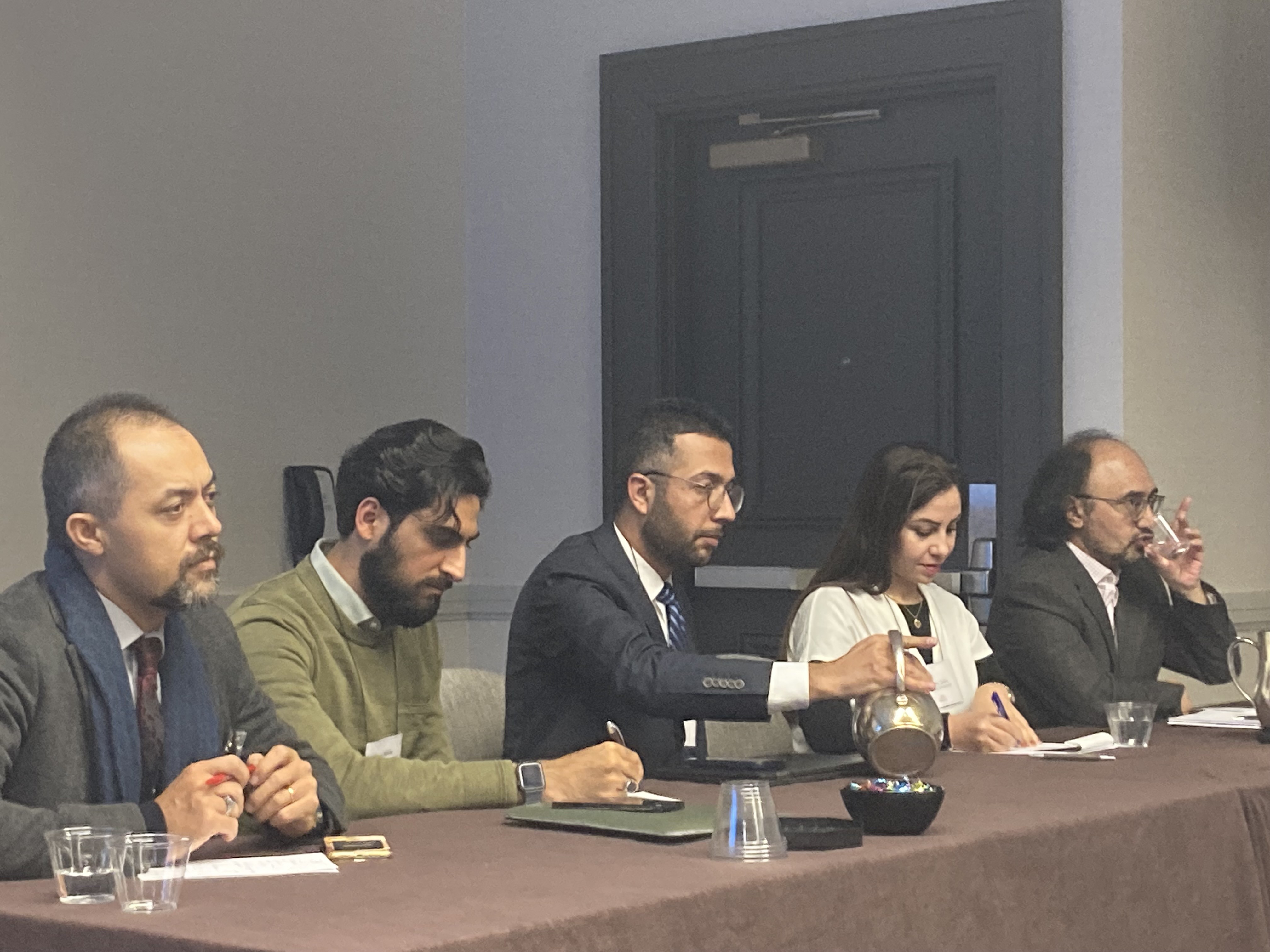
Global Academy scholars present their research on Afghanistan at the MESA Annual Meeting in Denver, December 4, 2022.
The Global Academy at the MESA Annual Meeting
The Global Academy hosted three events at the MESA Annual Meeting this year. We welcomed current and alumni scholars, partners, donors, and friends at a lunch where many attendees met in person for the first time and heard about the program's accomplishments to date as well as our plans for the future, which include a broader MESA-wide mentoring network and supporting more scholars located in the MENA region in addition to those in North America.
The Global Academy also organized two workshops at which current scholars presented their research. The first, "Constraints on Politics, Education, and the Economy: Dispatches from the Region," featured Dr. Ahmed Abdrabou of the University of Denver; Dr. Dina Hadad, formerly of Kuwait International Law School, Dr. Hamid Alawadhi of the University of Pittsburgh, Dr. Bengi Gumrukcu of Rutgers University, and Dr. Hossein Hafezian of Montclair State University. Dr. Laurie Brand of the University of Southern California served as moderator and discussant. The second, "The Nation, the Taliban, and Authoritarianism: Developments in Afghanistan," featured Dr. Sharif Hozoori of Cornell University, Dr. Sayed Hassan Akhlaq of Marymount University, Dr. Homeira Qaderi of Harvard University, Dr. Haroun Rahimi of the American University of Afghanistan, and Dr. Omar Sadr of the University of Pittsburgh. Dr. Marya Hannun of the University of Exeter served as moderator and discussant.
To listen to a portion of the panel on Afghanistan, please click the button below.
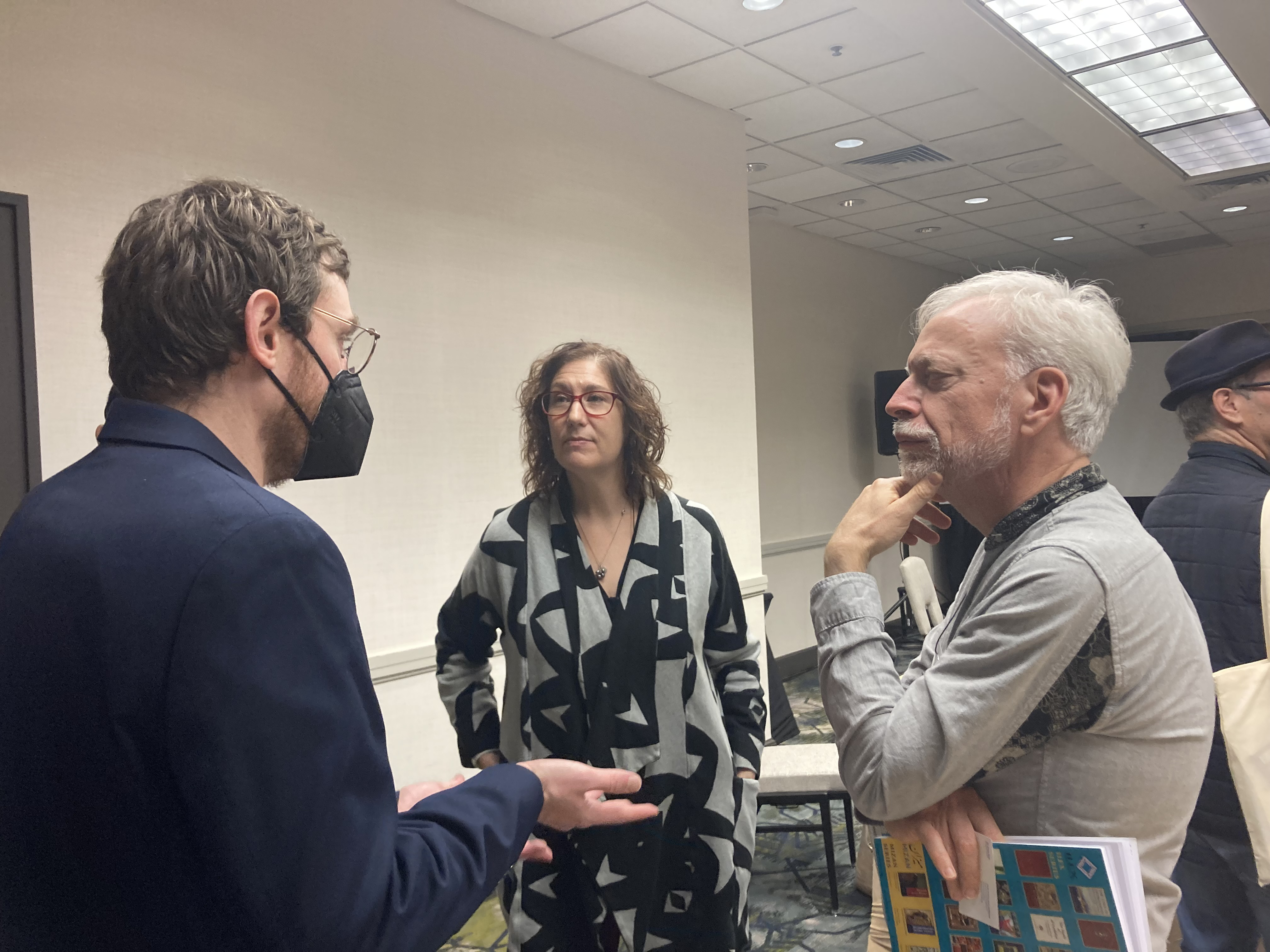
MESA Executive Director Jeff Reger chats with George Washington University Professor of Anthropology Ilana Feldman and George Washington University Professor of Political Science and International Affairs Nathan Brown at the Global Academy lunch.
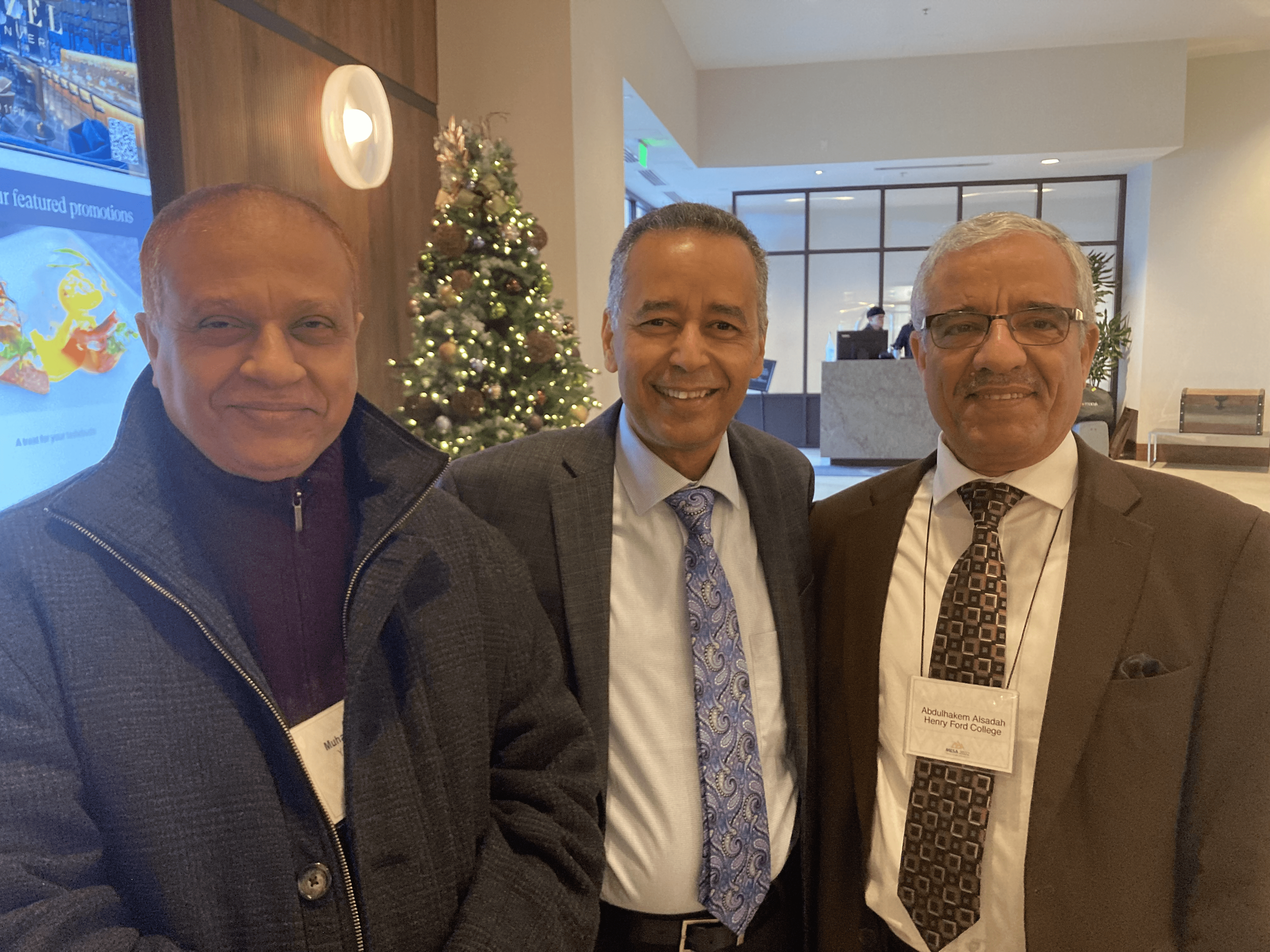
MESA Global Academy Scholar Dr. Hamid Alawadhi (center) ran into two childhood friends from Yemen at the MESA Annual Meeting.
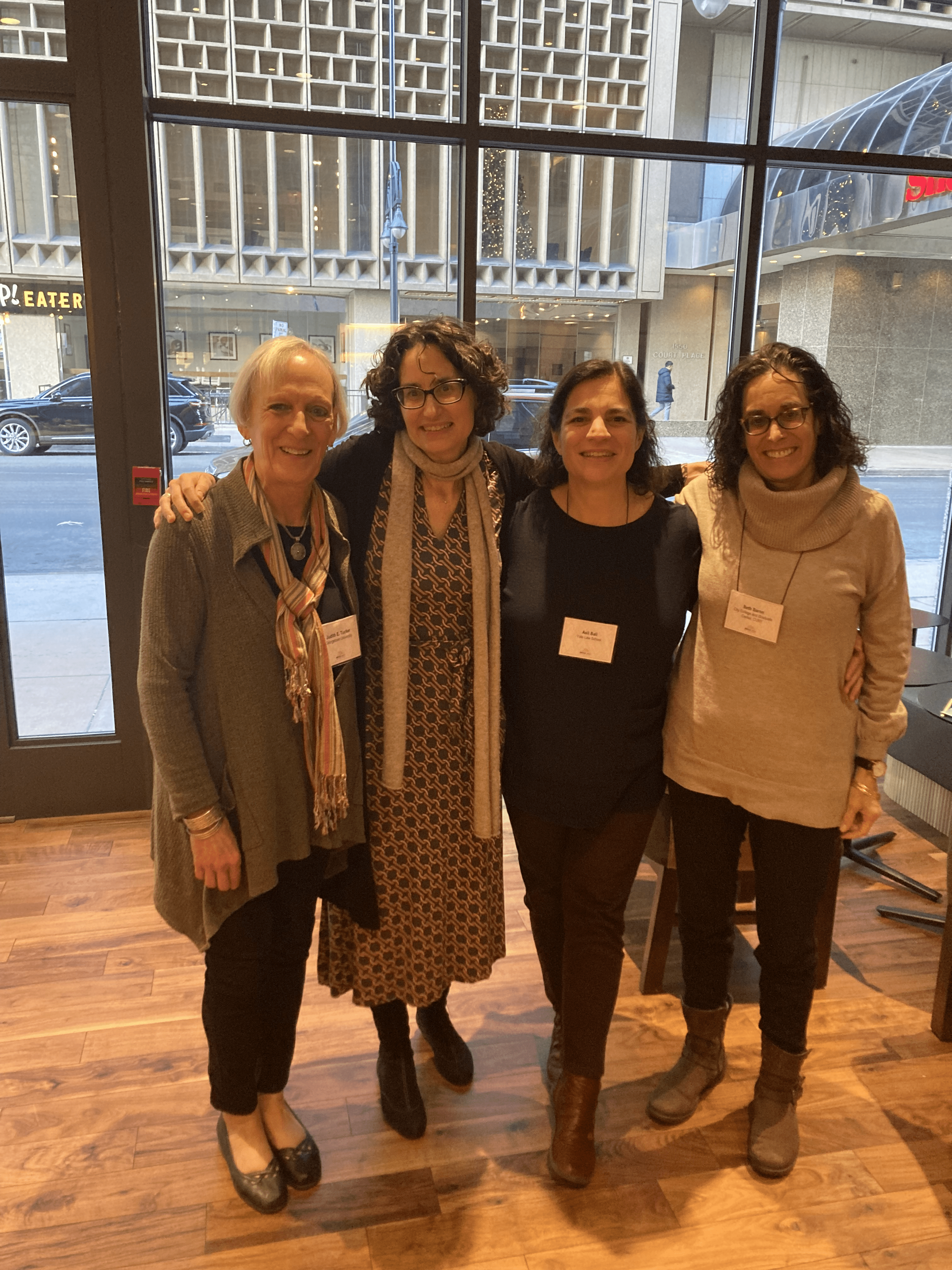
MESA Global Academy Committee Members Dr. Judith Tucker, Ms. Mimi Kirk, Dr. Asli Bali, and Dr. Beth Baron meet for breakfast at the MESA Annual Meeting.
Jadaliyya's Scholars in Context: The Latest from MESA Global Academy Scholars
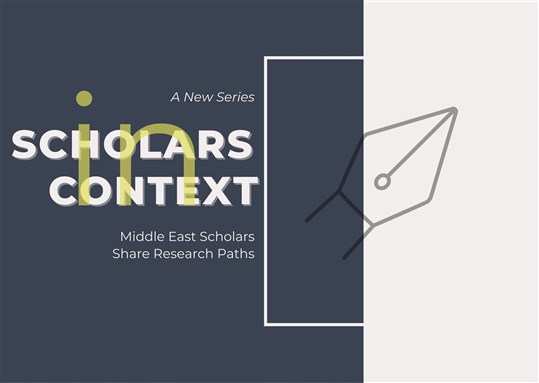
Jadaliyya's Scholars in Context series features Q&As with Global Academy scholars in which they describe their research and the paths they took to arrive at it. Please see below for the latest in the series.
Upcoming Events
This spring we are excited to be organizing, in collaboration with our university partners, a combination of online and in-person events. These will include a panel on the challenges of post-conflict, transitional contexts for cultural production, cultural studies and cultural rights at UCLA; a panel on law, political regimes, and order in the Middle East hosted by the University of Chicago and the University of Illinois at Chicago; and a panel on Afghanistan at Harvard University. To be kept abreast of our events, please visit our website.
